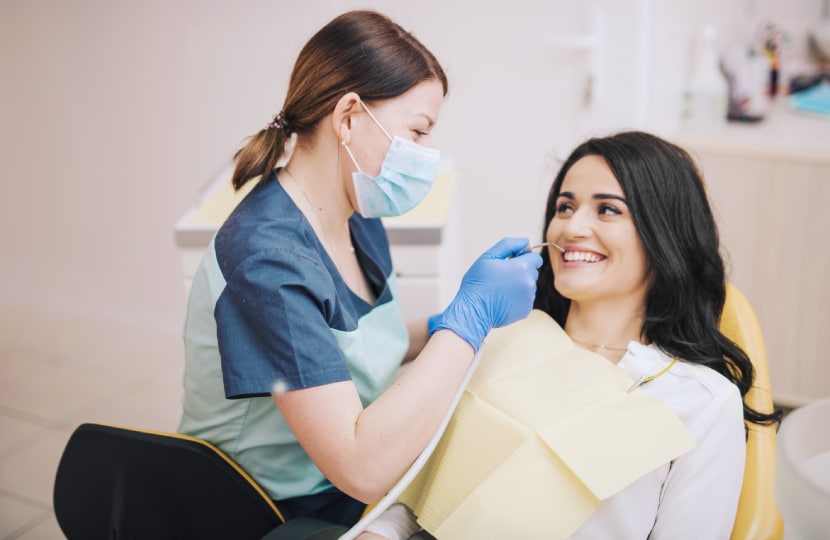In modern times, at-home teeth whitening kits have become trendier than going to the dentist for a professional cleaning. At-home teeth whitening kits are not only inexpensive, but have also been proven to be effective. So, what’s the need to go to the dentist for teeth whitening anymore? That will be answered in a while, but first, let’s take a look at the different types of at-home teeth whitening products in the market.
1. Whitening toothpaste
Whitening toothpastes contain chemical agents that help in polishing the surface of the tooth. These products do not contain bleaching agents that would get rid of the deep stains. Thus, technically, they do more of a cleaning than whitening!
Firstly, no tooth could be whitened from within, unless the deep stains are removed from there. For this, peroxide (usually hydrogen peroxide) is the bleaching agent that is used for whitening. Secondly, dentists fear that whitening toothpastes are usually more abrasive than suitable to most people. Thirdly, the whitening achieved by polishing the surface of the tooth does not last very long.
2. Whitening trays
This is perhaps one of the most common at-home whitening products in the market. These trays contain a relatively higher amount of bleach, thus, yielding better results. The trays are fitted over the teeth and left there for some time for the bleaching agent to absorb into the teeth.
However, the custom-fit trays that dentists provide at the clinic are much more effective. This is because they are made of the mold of your teeth, and thus, fit your teeth perfectly. As a result, your teeth evenly absorb the bleaching agent, which further gives way to consistent whitening.
3. Whitening gel strips
Whitening gel strips are thin plastic materials that are coated with peroxide. These fit better than over-the-counter whitening trays, providing for a better and consistent whitening.
However, there is always the chance of saliva seeping underneath, ruining the whitening process! Dentists often do not recommend it as they are known to cause gum irritation. Furthermore, some may contain chlorine dioxide, which can damage the enamel.
4. Whitening rinses
These are products that contain bleaching agents and are used like mouthwashes. You simply rinse your mouth with it every day, and it gradually whitens your teeth. They are also known to improve your oral health by preventing decay and infection, and prevent stain shortly after the rinse.
However, experts suggest that the procedure is too long and gradual results are hardly noticeable.
Why professional whitening is better
Dentists use a sufficient amount of bleaching agents that remove stains from within the teeth. This gives your teeth a shade of white that over-the-counter whitening kits cannot provide, due to the insufficient amount of bleaching agents in them.
Furthermore, it only takes you a single visit to the dentist to whiten your teeth, while at-home whitening products take months to serve the purpose. At the dentist, you’d be given fluoride treatment after whitening, which keeps away stains for a long time post whitening.
Last but not least, professional whitening ensures that the procedure is carried out properly and carefully, without causing any harm to your gums or teeth. Irrational use of teeth whiteners can lead to increased sensitivity or even damaged enamel.
“Some people who use teeth whiteners may experience tooth sensitivity. That happens when the peroxide in the whitener gets through the enamel to the soft layer of dentin and irritates the nerve of your tooth. In most cases the sensitivity is temporary. You can delay treatment, then try again. Overuse of whiteners can also damage the tooth enamel or gums, so be sure to follow directions and talk to your dentist.”
This is why you should opt for teeth whitening under professional control and supervision, rather than relying on at-home whitening kits.
